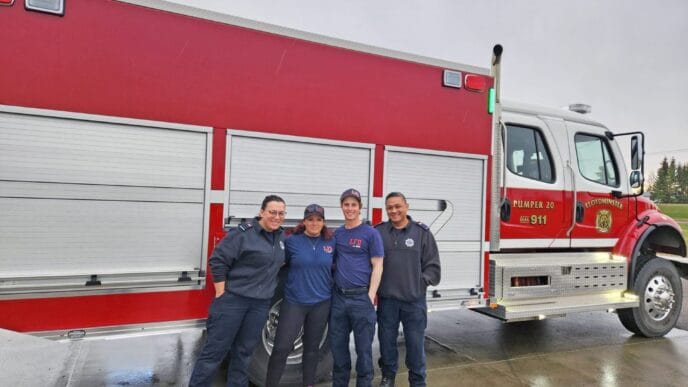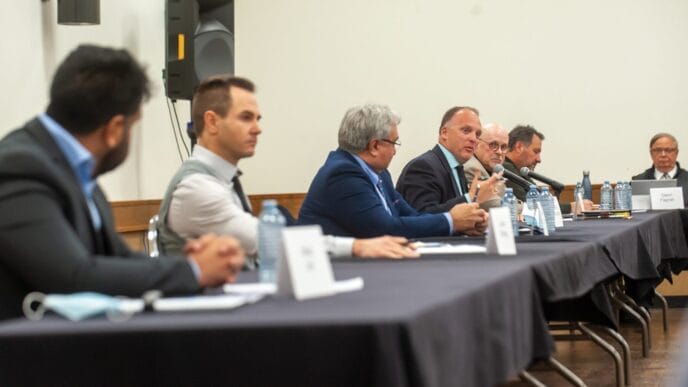File Photo
Lloydminster thermals are on a productive roll this year with Cenovus Energy reporting a first-quarter profit of $636 million, down from $1.6 billion in the same quarter last year.
Company president and CEO Alex Pourbaix gave a shout-out to Lloydminster production while delivering his last quarterly financial results on April 26 to start his new role as executive chair.
He told a conference call, Cenovus continues to optimize its development and operating strategy of Lloydminster thermals and Sunrise oilsands to support improved production volumes.
“At our Lloyd thermals, we have production solidly back over 100,000 barrels per day, while Sunrise will benefit from the first new well pad since 2017 when we start up a pad around the end of 2023,” said Pourbaix.
In its guidance for the year, Cenovus cautions it expects upstream production for 2023 to be between 790,000 and 810,000 barrels of oil equivalent per day, down from its December prediction for between 800,000 and 840,000.
Pourbaix took the opportunity, to sum up his leadership period at Cenovus with Jonathan McKenzie, the new president and CEO.
“The strategy we set at the beginning of my tenure in 2017 was really simple —optimize our cost structure, strengthen the balance sheet and ensure market access for our upstream production,” said Pourbaix.
“I can confidently say that we have delivered on all three and then some and I would like to thank everyone who made it possible.’
He noted he is “truly excited” to see McKenize lead the company forward.
Keith Chiasson, executive vice president downstream, touched on long-term plans for the Lloydminster upgrader and refinery in question period.
“We are obviously spending a fair amount of time looking at the opportunities to integrate our world-class upstream assets with the Lloydminster area and complex,” said Chiasson.
We actually are advancing at the refinery bottleneck opportunity right now. And that will expand the capacity of the refinery, we are also looking at a second bottleneck that will essentially increase throughput by almost 60 per cent over the next few years at the refinery.”
Chiasson noted the refinery is also a feed to the upgrader to bring over some higher quality condensate upstream dilbit (diluted bitumen) and process it at the upgrader.
Dilbit makes it easier to transport bitumen by pipeline with some benefits for the upgrader.
“…Then we can recycle that condensate, but also looking at the upgrader and pulling out additional diesel production out of the asset, as we process more dilbit through the combined infrastructure that we have there,” explained Chiasson.
“So pretty exciting opportunities that we are seeing there. A robust list of opportunities that we are progressing and ongoing debottlenecking, and improvements in those assets.”
Pourbaix noted those projects will return their cost of capital at a $45 West Texas Intermediate price environment.
















